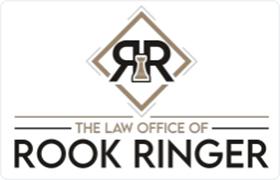 Jacksonville Misdemeanor Lawyers, Florida
Jacksonville Misdemeanor Lawyers, Florida
Sponsored Law Firm
-
 x
x

Click For More Info:
-
The Law Offices of Rook Ringer
1 Main St. Saint Augustine, FL 32084» view mapCriminal Defense Get On The Path To Results Today
Let us help you figure out your best next steps are. The sooner you have a plan of action, the better your chances of taking the correct steps to get the results you want.
800-819-8041
Sponsored Lawyers
1-4 of 4 matches
Felony, DUI-DWI, Misdemeanor, Traffic
If you or a loved one has been arrested, or is being investigated for a criminal charge, having a lawyer represent you AS SOON AS POSSIBLE is one of the most important things you can do to help. I am Bryan Neal and I am your Jacksonville Criminal lawyer. If you have been arrested, I can represent them at "First Appearance" court, and ask for an AFFORDABLE BOND or an ROR (NO MONEY RELEASE) so that the person arrested can go about their regular life such as school, work and family while I work out the charges. will speak with the PROSECUTOR and ask that the case be placed in a "PTI"( Pre-Trial Intervention) program, which if successfully completed will result in NO CHARGES BEING FILED. I can also ask that a felony case be "dropped down" to a misdemeanor, where there would be NO RISK OF A FELONY CONVICTION. As your criminal lawyer I may ask that you receive treatment for problems with drugs or alcohol INSTEAD OF SERVING A JAIL OR PRISON SENTENCE. There are LOTS OF OPTIONS for people who are arrested besides a JAIL OR PRISON SENTENCE. As your criminal lawyer I will help you get the BEST POSSIBLE OUTCOME. If a person is UNDER INVESTIGATION or has a WARRANT for their arrest, I will speak with the POLICE and the STATE ATTORNEY, so you don't have to ! IT IS IMPORTANT when you hire a CRIMINAL LAWYER that they are familiar with the people making decisions and have COURTROOM EXPERIENCE.
(more)Criminal, DUI-DWI, Felony, Misdemeanor
Kevin Alan Raudt proudly serves Ponte Vedra Beach, FL and the neighboring communities in the areas of Criminal Defense, Divorce & Family Law and DUI-DWI law. Please click to view my Website.
(more)



 Rook Ringer Saint Augustine, FL
Rook Ringer Saint Augustine, FL Practice AreasExpertise
Practice AreasExpertise


